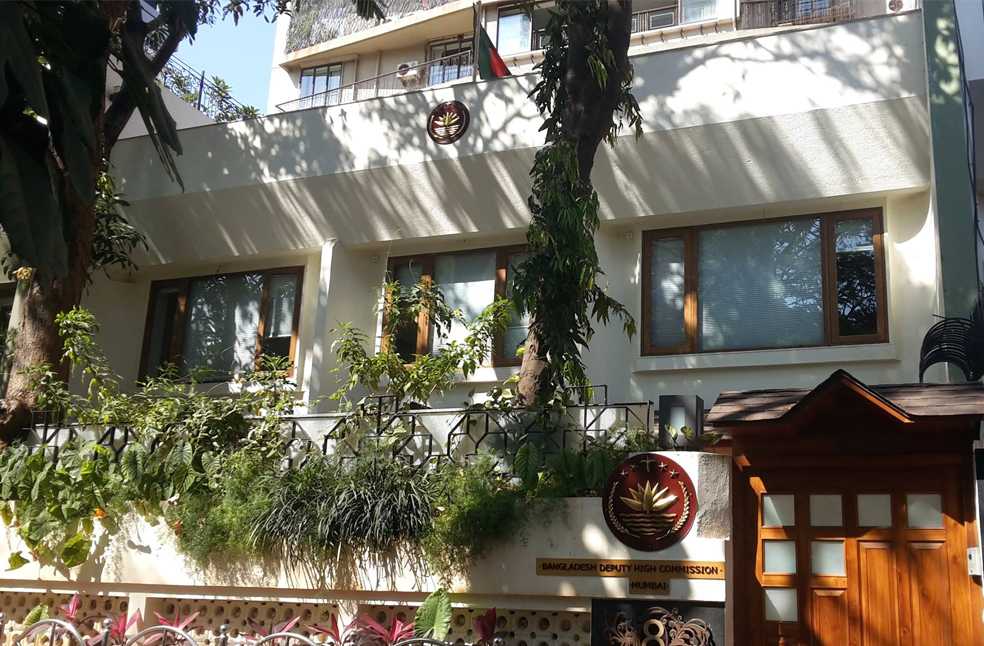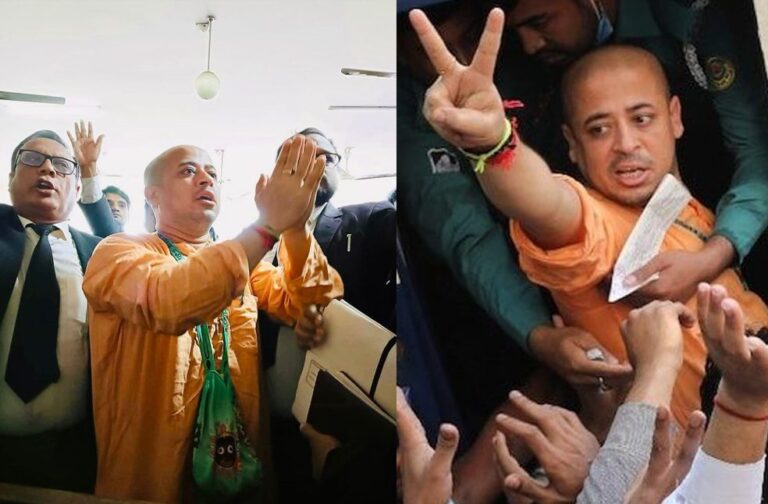Dhaka/New Delhi: Tensions between India and Bangladesh have escalated dramatically following protests and counter-protests over the treatment of Hindu minorities in Bangladesh, further straining relations between the neighbouring nations.
The situation began deteriorating in August when former Bangladeshi Prime Minister Sheikh Hasina fled to India after being ousted in a public uprising.
The arrest of Hindu monk Chinmoy Krishna Das in October intensified the unrest. Das, detained on charges of sedition for allegedly raising a saffron flag—a symbol associated with Hinduism—above the Bangladeshi national flag, has become a flashpoint.
His supporters claim the accusations are false and part of a political feud, while his bail denial has led to violent clashes, including the death of a Muslim lawyer.
The situation took a serious turn last week when protesters in India, led by Hindu organizations and members of Prime Minister Narendra Modi’s BJP, stormed Bangladesh’s consulate in Agartala, Tripura.
They vandalized the building and desecrated the Bangladeshi flag, prompting outrage in Dhaka. Bangladesh’s foreign ministry called the attack “heinous” and demanded a thorough investigation.
India’s government distanced itself from the incident, labelling it “deeply regrettable” and arresting seven individuals. However, the attack has become a major irritant in bilateral ties, with Bangladesh accusing Indian media of spreading disinformation to fuel tensions.

Religious and Political Backdrop
Hindus constitute less than 10% of Bangladesh’s population and have reported discrimination and targeted attacks, particularly following Hasina’s overthrow.
The interim Bangladeshi government, led by Muhammad Yunus, has deployed additional security to protect religious minorities, including ISKCON temples, which have faced vandalism in recent days. Officials have denied allegations of orchestrated violence, calling them isolated incidents.
Beyond political and religious dimensions, the crisis is disrupting daily life for people reliant on cross-border exchanges. Bangladeshi citizens traveling to India for business or medical purposes have encountered hostility, with protests at border crossings intensifying.
Calls for Restraint
Experts warn that the ongoing protests and inflammatory rhetoric threaten to spiral out of control. With Sheikh Hasina’s stay in India adding further strain, both governments are under pressure to de-escalate tensions.
Observers emphasize the importance of maintaining the historically strong ties between the two nations, which are critical for border security and regional stability.
India and Bangladesh, which share cultural and linguistic bonds, need to prioritize dialogue to resolve the crisis, experts say, urging both sides to address internal challenges without jeopardizing their relationship



